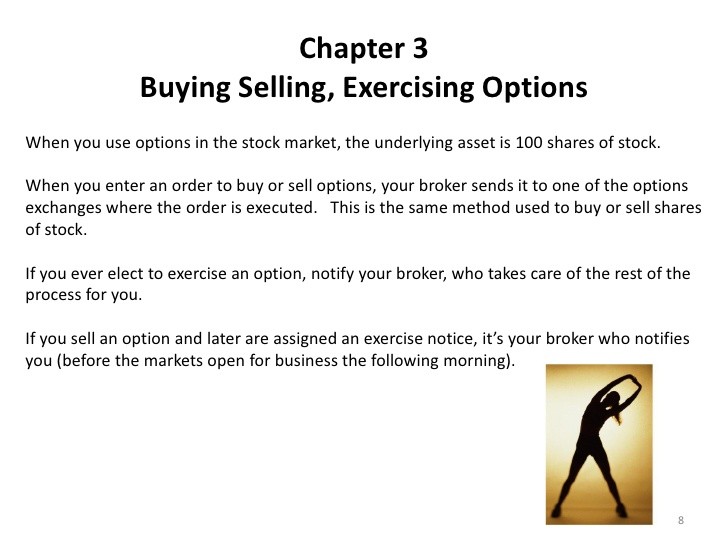Option Basics
Post on: 30 Июль, 2015 No Comment

How Options Work
Options can be used to take a position on the market in an effort to capitalize on an upward or downward market move. Unlike stocks however, options can provide an investor the benefits of leverage over a position in an individual Stock, Exchange Traded Fund (ETF), or Broad Market Index. Options buyers also can take advantage of predetermined, limited risk. Conversely, option writers assume significant risk if they do not hedge their positions.
An option is the right, but not the obligation, to buy or sell a stock (or other security) for a specified price on or before a specific date. A call is the right to buy the stock, while a put is the right to sell the stock. The person who purchases an option, whether it is a put or a call, is the option buyer. Conversely, the person who originally sells the put or call is the option seller.
Options are contracts in which the terms of the contract are standardized and give the buyer the right, but not the obligation, to buy or sell a particular asset at a fixed price (the strike price) for a specific period of time (until expiration). To the buyer, an equity call option normally represents the right to buy 100 shares of underlying stock, whereas an equity put option normally represents the right to sell 100 shares of underlying stock. The seller of an option is obligated to perform according to the terms of the options contract-selling the stock at the contracted price (the strike price) for a call seller, or purchasing it for a put seller-if the option is exercised by the buyer.
The price of an option is called its premium. The potential loss to the buyer of an option can be no greater than the initial premium paid for the contract, regardless of the performance of the underlying stock. This allows an investor to control the amount of risk assumed. On the contrary, the seller of the option, in return for the premium received from the buyer, assumes the risk of being assigned if the contract is exercised.
Call Options
A Call Option is an option contract that gives the holder the right, but not the obligation, to buy the underlying asset at a specified price for a specified period of time. For an equity call option the buyer has purchased the right to buy 100 shares of the underlying stock at the stated exercise price. The seller is obligated to sell those shares at the exercise price if the buyer exercises his option to buy those shares. An investor would buy a Call Option if he anticipates the stock moving up in price.














